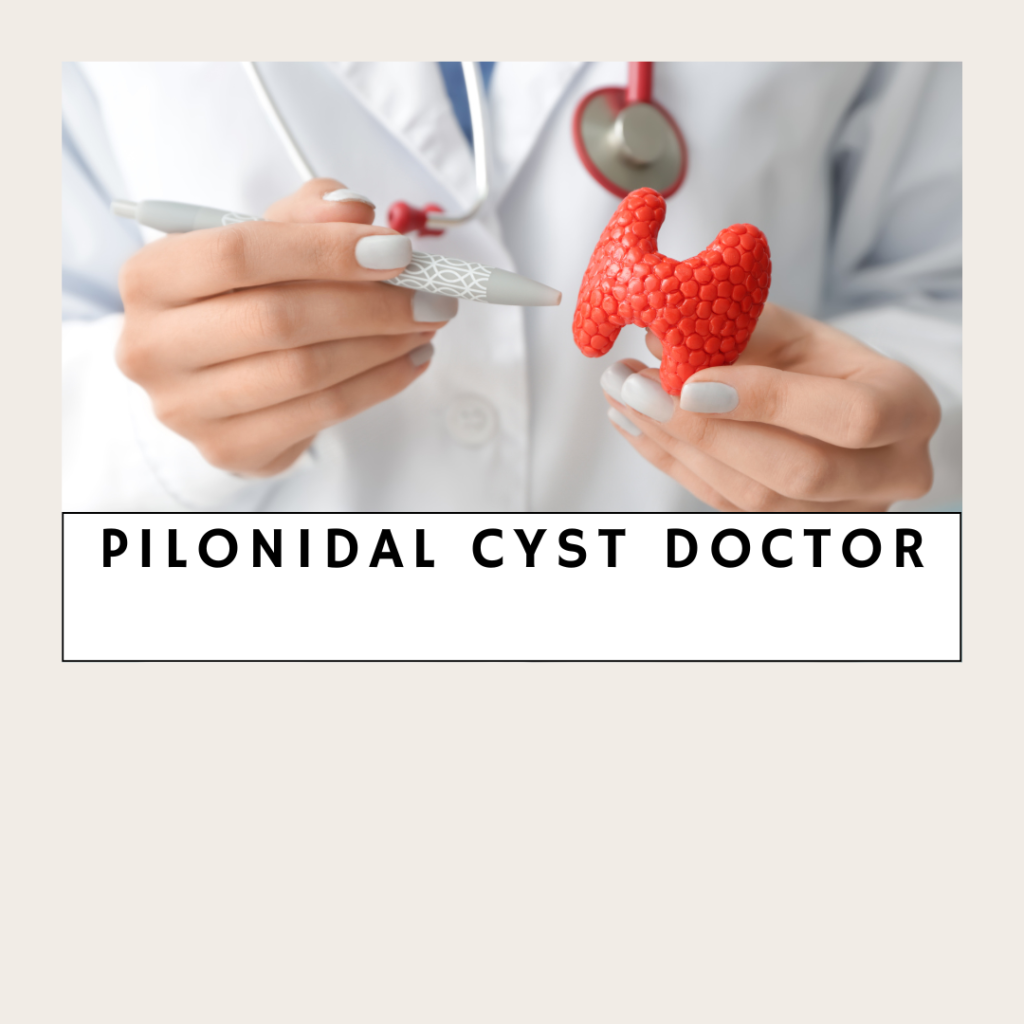This blog provides basic questions to ask your doctors about treatment choices, surgery, recovery, and prevention for pilonidal cyst. It underlines the need to know your situation and talk with a doctor about pilonidal to guarantee wise decisions and efficient therapy all through your course of treatment.”
Especially in cases when one has all the knowledge required to make the right choices for their health, living with a pilonidal cyst can be unpleasant and sad. When you start looking for treatment, there are several queries one should ask to grasp the situation and the choices accessible to you. Since an educated patient is a healthy patient, at Pilonidal Experts we developed the following list of the most crucial questions to ask your pilonidal cyst doctor.
1. What Exactly Is a Pilonidal Cyst?
Understanding what a pilonidal cyst is can help you feel far more confident about the potential treatment choices. Usually developing around the tailbone, a pilonidal cyst is effectively a skin pocket. It might get infected and is sometimes loaded with dead skin and hair. Many people do not show any indications of the described illness until they start to be uncomfortable or infected.

Questions Patients Should Ask:
- How may I develop a pilonidal cyst?
- What are the odds of its returning?
- Is there any way I could stop it?
These inquiries will enable you to understand the condition and make decisions on future avoidance of difficulties.
Read more about Pilonidal ‘Cyst’ – The Do’s and Don’ts
2. What Therapies are Available?
Your circumstance dictates that there are several approaches to curing pilonidal cysts. While a case of a severe nature can call for extensive therapy, such as surgery to remove pilonidal cyst, mild situations could be addressed with antibiotics or drainage. A knowledgeable doctor for pilonidal cysts can help you explain the specifics of every treatment.
Questions To ask:
- Based on your experience, which would be the best approach to handle my case?
- What are the advantages and disadvantages of every treatment suggested?
- Are there any nonoperative treatments or alternatives other than surgery?
- For every kind of treatment, what length of time will the recovery period take?
These questions will assist you and your doctor in deciding on the best line of action for your specific condition.
3. When Is Surgery Required?
Though it is frightening to consider surgery, depending on whether a pilonidal cyst is recurrent or infectious, it could be a possibility to help completely eradicate the cyst and reduce symptoms. One should learn what to expect from the procedure and when it is required.

Inquiries to make:
- Can a pilonidal cyst be treated nonsurgically? Will I require surgery to remove it?
- What is the process like?
- Will I be under general or local anesthetic?
- Regarding the duration of recovery, what is expected?
- Regarding surgery, what are the risk factors?
These questions will enable you to properly understand the surgical operation and thereby assist in mental and physical preparation for the operation.
Read more about Why You Need a Specialist Pilonidal Cyst Doctor for Effective Treatment
4. What should one expect from recovery?
Whether it’s surgery or another less intrusive treatment, one should know about recovery. Your treatment choice and the degree of the cyst will determine how long your recovery and post-treatment will take.
Questions to ask:
- What should the process of recuperation yield?
- Is physical activity or work affected, and if so for how long?
- How can I prevent after-treatment infection or other complications?
- The wound’s healing timescale is what?
Knowing the answers to these questions can help you to schedule your rehabilitation more sensibly, therefore allowing your body the time it needs to heal.
5. How Might I Avoid Future Pilonidal Cysts?
How patients might halt the cysts from recurrences is one of the most often requested questions by them. Pilonidal cysts are prone to recurrence, hence one should be aware of the preventive measures meant to reduce their likelihood.
Questions:
- Are there any significant lifestyle adjustments I could do to help this situation not to recur?
- Would any hair removal technique including laser treatment help to either prevent or lessen the occurrence?
- Following a pilonidal cyst’s treatment, what is advised as a follow-up with a doctor?
- What kind of long-term preventative treatment could one do?
Your doctor will provide you with different recommendations on how to properly maintain the area and reduce recurrences; so, you will be confident about their life.
6. When pilonidal cysts are not treated, what are the risks?
Although the pilonidal cyst is not inherited, some people would be persuaded to live with it; such negligence might cause problems later on. If it is not treated, various unpleasant disorders like cyst infection which subsequently develops into an abscess can occur.
- One could wonder what would happen if my pilonidal cyst went untreated and neglected.
- Should the cyst not be addressed, may I develop more severe medical problems?
- Should my cyst develop an infection or cause pain, how soon should I start treatment?
Knowing some of the issues brought on by waiting too long for treatment will enable you to quickly make wise decisions.
7. What doctor treats pilonidal cyst?
You should trust your doctor and feel comfortable with them. If you need surgery or non-surgical treatment, you should know who will perform it and their workload.
Questions To Ask:
- My operation will be carried out by who?
- You have carried out how many pilonidal cyst operations or treatments?
- Regarding like circumstances, what is your success rate?
These kinds of questions assist that you are in good hands and help you develop trust.
Conclusion
Your treatment and recovery will be much improved by asking the appropriate questions on treatment for a pilonidal cyst. Whether non-surgical or surgical treatment such as pilonidal cyst removal surgery is under consideration, your capacity to grasp a course of treatment and the possible results will help you to make wise judgments. Our approach at Pilonidal Experts is to walk our patients through every phase of the treatment process and offer complete care. If you have a pilonidal cyst, don’t hesitate to contact a surgeon to get the answers and treatment you so deserve.


